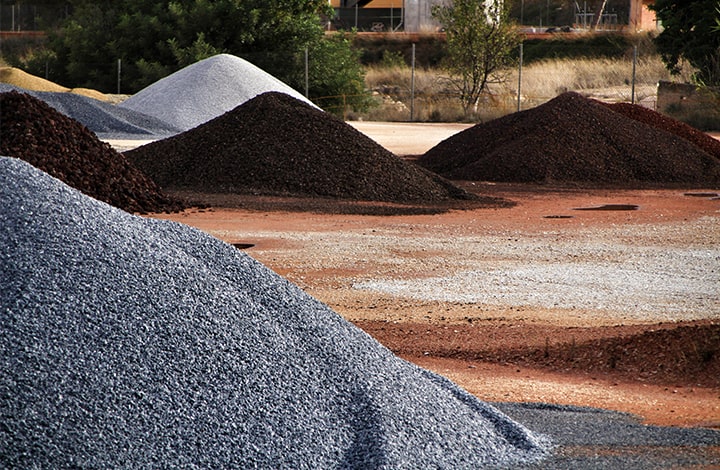Construction Aggregates – The essential ingredient
JSW Cement has contributed to cement, concrete and aggregates into building a selection of major infrastructure development projects as well as iconic architecture projects.

Lets dive deep into construction aggregates
Construction aggregates are materials that are used in construction and civil engineering projects to create solid structures, such as roads, buildings, bridges, and dams. Aggregates are composed of materials such as crushed rock, gravel, sand, and other minerals that have been extracted from quarries or pits.
Aggregates can be categorized into two main types: coarse aggregates and fine aggregates. Coarse aggregates are larger in size, typically greater than 4.75 millimeters, and are used for structural purposes in concrete and asphalt mixes. Fine aggregates are smaller in size, typically less than 4.75 millimeters, and are used to produce mortar and concrete mixes.
Construction aggregates are crucial in the construction industry as they provide strength, durability, and stability to the structures. They are also essential in improving the workability and reducing the cost of construction materials.
JSW - Screened Slag
Because river sand and crushed rock fines contain fossils and other irregular particles, such clay and silt, that affect quality and durability, screened slag is superior to river sand. Our Screened Slag complies with IS 383 - 2015.
The features include higher compressive strength, better and improved bonding, high durablity, controlled physical property, and green products.
The advantages are as follows
- Doesn't contain fossils and clay
- Negligible slit content, thereby improving the strength parameters
- Improves durability of the structure
- Delivers improved strength to the concrete as compared to natural sand
- Offers improved bonding
- Reduction in shrinkage of cracks
- Improves cohesiveness of concrete/mortar/plaster mixes
- Smoother surface finish
Construction aggregates have various features that make them suitable for construction projects. Here are some of the main features of construction aggregates:
- Strength and Durability: Construction aggregates are hard and strong, which makes them suitable for use in construction projects that require stability and durability. They can withstand heavy loads, weather conditions, and wear and tear.
- Size and Shape: The size and shape of construction aggregates can be customized to suit different construction needs. The size of aggregates can range from small pebbles to large rocks, and their shape can be round, angular, or irregular.
- Texture and Porosity: The texture and porosity of construction aggregates affect their workability and the final appearance of the construction project. Aggregates with a smooth texture are often used in decorative applications, while those with a rough texture are used for structural purposes.
- Density: The density of construction aggregates affects their weight and the final weight of the construction project. Heavy aggregates are suitable for projects that require a high level of stability, while lighter aggregates are used for projects that require less weight.
- Availability and Cost: The availability and cost of construction aggregates are important considerations when choosing the right material for a construction project. Aggregates that are readily available locally are often less expensive than those that need to be transported from a long distance.
Overall, construction aggregates are essential materials in the construction industry due to their strength, durability, and ability to enhance the workability and appearance of construction materials.
Construction aggregates are used in a wide variety of construction applications. Here are some of the most common applications of construction aggregates:
- Concrete: Construction aggregates are a key component in the production of concrete, which is used in the construction of buildings, roads, bridges, and other structures. Aggregates provide the bulk and strength to the concrete mixture.
- Asphalt: Aggregates are also used in the production of asphalt, which is used to pave roads, parking lots, and other surfaces. Asphalt aggregates provide the necessary strength and stability to the asphalt mixture.
- Drainage Systems: Aggregates are used in the construction of drainage systems, including stormwater drainage systems, septic systems, and retaining walls. They provide a stable base for the drainage systems and help to prevent erosion.
- Landscaping: Construction aggregates are often used in landscaping projects, such as creating pathways, retaining walls, and decorative features. Aggregates can be used to create a natural-looking and low-maintenance landscape.
- Railways: Aggregates are used as ballast in railway tracks, providing a stable base for the tracks and helping to distribute the weight of the trains evenly.
You can always get in touch with our professionals at JSW Cement if you need any kind of help. We pledge to make the process of designing a beautiful home simple and rewarding.
